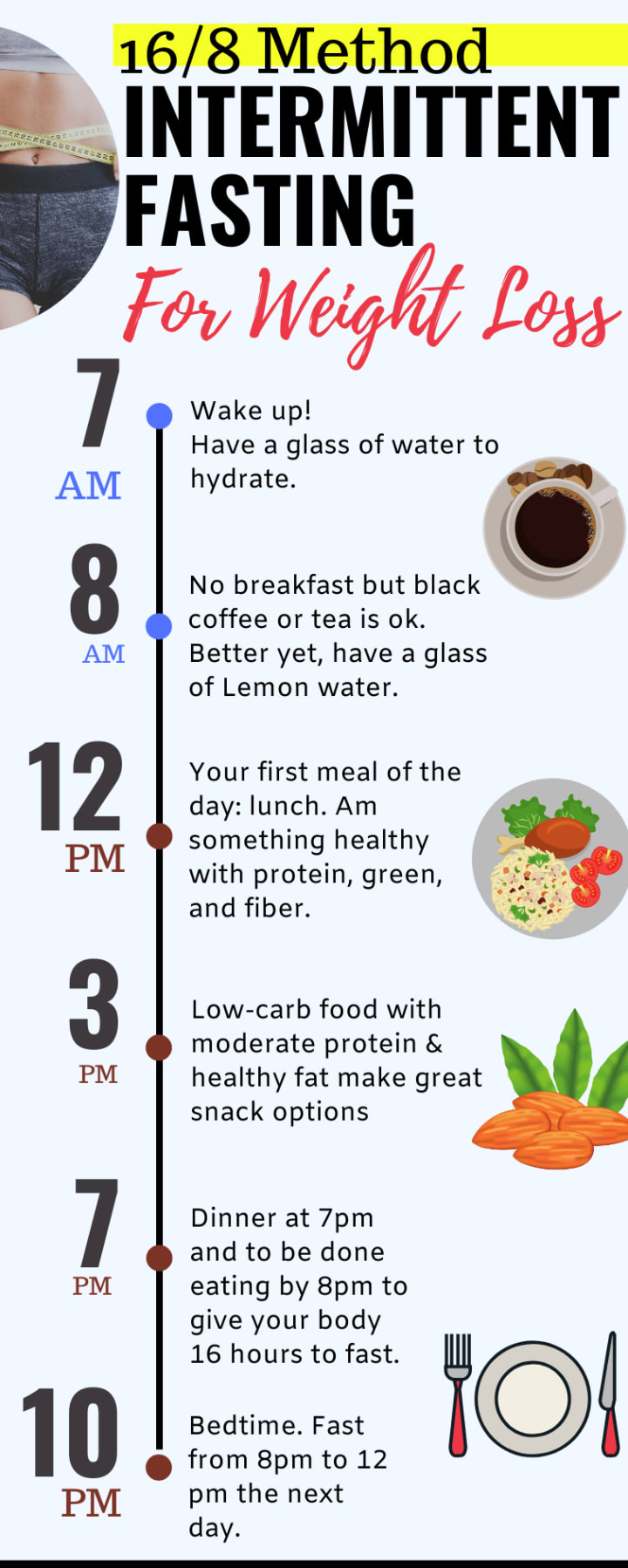A Beginner's Guide to Intermittent Fasting
Benefits and Best practices.

Intermittent fasting (IF) has gained significant popularity as a dietary approach for weight loss, improved health, and increased longevity. It involves alternating periods of fasting and eating within a specified time frame. In this article, we will provide a beginner's guide to intermittent fasting, exploring its benefits, different fasting methods, and best practices for successful implementation.
What is Intermittent Fasting?
Intermittent fasting is not a diet but rather an eating pattern that cycles between periods of fasting and eating. It does not dictate what foods to eat but rather focuses on when to eat them. There are several popular methods of intermittent fasting, including:
16/8 Method: Also known as the Leangains protocol, this method involves fasting for 16 hours and restricting eating to an 8-hour window each day. Most people achieve this by skipping breakfast and starting their first meal around noon, then eating their last meal by 8 pm.
5:2 Diet: This method involves consuming a normal amount of calories for five days of the week and reducing calorie intake to 500-600 calories for two non-consecutive days.
Alternate Day Fasting: With this method, individuals alternate between fasting days, where calorie intake is severely restricted or eliminated, and non-fasting days with normal eating.

Benefits of Intermittent Fasting:
Weight Loss: Intermittent fasting can help facilitate weight loss by reducing calorie intake and increasing fat burning. It can also help preserve lean muscle mass.
Insulin Sensitivity: Intermittent fasting can improve insulin sensitivity, potentially lowering the risk of type 2 diabetes and promoting better blood sugar control.
Cellular Repair: During fasting periods, the body initiates cellular repair processes, including autophagy, where damaged cells are cleared out and replaced with healthy ones.
Brain Health: Some studies suggest that intermittent fasting may have neuroprotective effects, enhancing brain health and reducing the risk of neurodegenerative diseases.
Longevity: Intermittent fasting has been linked to increased longevity in animal studies. While more research is needed in humans, it may have potential anti-aging effects.
Best Practices for Intermittent Fasting:
Start Slowly: If you're new to intermittent fasting, begin with a shorter fasting window and gradually increase it as your body adjusts. This allows for a smoother transition and reduces the likelihood of extreme hunger or discomfort.
Stay Hydrated: Drink plenty of water throughout the day, especially during fasting periods, to stay hydrated and help curb hunger.
Choose Nutrient-Dense Foods: Focus on consuming whole, nutrient-dense foods during your eating window to ensure you're getting essential nutrients.
Listen to Your Body: Pay attention to your body's hunger and fullness cues. It's important to nourish yourself adequately during your eating window and avoid overeating or restrictive behaviors.
Be Flexible: Intermittent fasting is flexible, and it's essential to find a fasting pattern that works for your lifestyle. Experiment with different methods to find what suits you best.
Prioritize Sleep: Get sufficient sleep to support overall health and well-being. Good quality sleep is essential for regulating hunger hormones and supporting energy levels.
Consider Professional Guidance: If you have any underlying medical conditions or concerns, consult with a healthcare professional or a registered dietitian before starting intermittent fasting.
Precautions and Considerations:
Intermittent fasting may not be suitable for everyone. Individuals with certain medical conditions, such as diabetes, eating disorders, or women who are pregnant or breastfeeding, should consult a healthcare professional before starting intermittent fasting. Additionally, it's essential to listen to your body and discontinue fasting if you experience any adverse effects.
Conclusion:
Intermittent fasting is a flexible and effective approach to eating that offers numerous potential health benefits. By incorporating periods of fasting into your routine, you can support weight loss, improve insulin sensitivity, enhance cellular repair, and promote overall well-being. Remember to start slowly, listen to your body, and make mindful food choices during your eating window. With proper understanding and implementation, intermittent fasting can be a powerful tool for optimizing health and achieving your wellness goals.





Comments
There are no comments for this story
Be the first to respond and start the conversation.